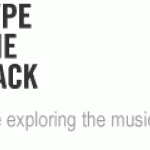Academia
(On July 16, 2009, I asked for volunteers with science degrees and non-academic jobs who would be willing to be interviewed about their careers paths, with the goal of providing young scientists with more information about career options beyond the pursuit of a tenure-track faculty job that is too often assumed as a default. This post is one of those interviews, giving the responses of Cush Copeland, a high-school science teacher.)
1) What is your non-academic job?
I teach high school science in a public school in Central Florida. Over twenty years, I have taught mostly earth/space science (…
(On July 16, 2009, I asked for volunteers with science degrees and non-academic jobs who would be willing to be interviewed about their careers paths, with the goal of providing young scientists with more information about career options beyond the pursuit of a tenure-track faculty job that is too often assumed as a default. This post is one of those interviews, giving the responses of Lucy Rogers, a writer in the UK.)
1) What is your non-academic job?
I have managed to combine my interest in all things space with parts of my portfolio career. For example, I am the author of the book 'It's…
Welcome to the August 2009 edition of Scientiae, the blog carnival of "stories of and from women in science, engineering, technology, and math."
[Apologies at the outset for missing the submission from ScienceWoman, co-blogger at Sciencewomen, entitled, "Unhurried summer mornings"]
I'm honored to be the first man invited to host the carnival. The invitation means a great deal to me on a number of levels: my laboratory has run between 75% and 100% women during my years in the business, including all of my PhD students, and I have a brilliant physician-scientist wife who has given us a joyous…
During my summer blogging break, I thought I'd repost of few of my "greatest hits" from my old blog, just so you all wouldn't miss me so much. This one is from July 3, 2007. It's one of the most popular posts I've done, and it was linked quite widely in the science blogosphere. The interview series has lapsed a bit this year, but that's mostly due to a couple of the people I was approaching just not working out. I will definitely relaunch the series in the fall and try to do one every other month or so.
=====
Welcome to the most recent installment in my occasional series of interviews…
Last week, Sean raised the critical academic question of when to serve food associated with a seminar talk. He did not, however, address the more important question, namely what to serve at a seminar talk. So I'll do it, scientific-like:
Which of the following items should be served at an event associated with an academic talk (check all that apply):(answers)
And, just in case you feel left out of Sean's original discussion:
The food at an academic seminar talk should be served:(polling)
The posting of this has nothing to do with the fact that I've been organizing the summer student…
The ADVANCE Center for Institutional Change received an award from the National Science Foundation ADVANCE program to hold professional development workshops for Ph.D.-level women in industry, research labs, consulting, or national labs who are interested in transitioning to academic careers in STEM. The first workshop will be held October 18-20, 2009 in Seattle. A recent press release about the workshops is at: http://uwnews.org/uweek/article.aspx?id=49062
The workshop speakers will primarily be successful women faculty members who began their post-Ph.D. careers in industry, research labs…
Just a quick note this morning as I picked up the dead-tree version of The New York Times this morning in the PharmDriveway.
For some reason, I recognized the name of Anthony DeCurtis in the byline of this short essay on the Manson family Tate-LaBianca murders marking the demise of the 1960s counterculture movement. I posted yesterday on the speakers at the upcoming conference, U2: The Feedback and The Hype - DeCurtis is keynote speaker.
No surprise here since DeCurtis - Dr. DeCurtis, I learned below - has been a contributing editor to Rolling Stone mag and books, with many works in the NYT…
During the summer between high school and college, about this very time in 1981, I was sitting at a beach house in North Carolina listening to my uncle rail against The Beatles. He held that the band never truly took its fame and international press attention to doing anything good for the world except to glorify LSD.
I now get to tell him about U2.
That summer also saw the launch of MTV and in fall I watched four young Dubliners on a barge playing a song called, "Gloria," the opening track of their album October. And in the intervening years the band, and especially its lead singer Bono…
Abel, host of the next edition of Scientiae, has asked us how we balance our summer "musts" and "needs" (work and play). I think I've come up with a personally satisfactory answer to that question: lazy summer mornings.
During the academic year, mornings are a blur of getting everyone breakfast, dressed, and out the door. Sometimes Minnow would rather stay at home and play, but those 9 am classes and meetings won't wait for a toddler.
In the summer that time pressure is off. Rather than leaping out of bed with alarm clock, we let the dogs whining and our body's inclinations do the trick. We…
The semi-nonymous Phillip H. at DC Dispatches liked the idea behind the Project for Non-Academic Science, but he didn't want to reveal his secret identity. So he wrote up and posted his own interview:
1) What is your non-academic job?
I'm the National Program Coordinator for Protected Species at my Federal Agency. This means I work to bring together a whole host of offices, labs, programs, and people to conserve and recover marine species that are listed under the Endangered Species Act and the Marine Mammal Protection Act.
Go over there to read his answers to the rest of the questions.
(On July 16, 2009, I asked for volunteers with science degrees and non-academic jobs who would be willing to be interviewed about their careers paths, with the goal of providing young scientists with more information about career options beyond the pursuit of a tenure-track faculty job that is too often assumed as a default. This post is one of those interviews, giving the responses of Jon Moulton, a biologist working at a small biotech company.)
1) What is your non-academic job?
I work for Gene Tools, LLC, manufacturers of Morpholino antisense oligos, as a molecular biologist and general-…
While I'm stealing post ideas from Twitter, here's another poll question, thanks to Eric Weinstein, who wrote earlier:
And @CameronNeylon, when you write "Good science means not having an (emotional) allegiance to any theory surely?" I must strongly disagree.
This position results from the luxury of living on the far side of an adaptive valley which long ago was crossed by others.
So, here's another poll:
Agree or disagree: "Good science means not having an (emotional) allegiance to any theory."(polls)
(This was in the context of a running series of ruminations about academic organization…
[This 23rd July entry is being reposted today under the ScienceBlogs "Education" channel as its original categorization there fell victim to gremlins in the upgraded Movable Type script.]
At the outset, let me say that I have immense respect and admiration for a special commenter.
In last week's Friday Fermentable post, we took the 40th anniversary of the Apollo XI mission as an opportunity to draw attention to Buzz Aldrin's newly-released autobiography, Magnificent Desolation. In it, Aldrin describes his lifelong battle with depression and alcoholism and how he has managed both challenges.…
(On July 16, 2009, I asked for volunteers with science degrees and non-academic jobs who would be willing to be interviewed about their careers paths, with the goal of providing young scientists with more information about career options beyond the pursuit of a tenure-track faculty job that is too often assumed as a default. This post is one of those interviews, giving the responses of Katherine Porter, an editor of textbooks and other educational materials.)
1) What is your non-academic job?
I work as a science content editor for Words & Numbers, an educational content developer. Our…
There's an interesting report at Inside Higher Ed today on a study of religiosity and college. Some of the results will probably come as a surprise to many people around ScienceBlogs:
# The odds of going to college increase for high school students who attend religious services more frequently or who view religion as more important in their lives. The researchers speculate that there may be a "nagging theory" in which fellow churchgoers encourage the students to attend college.
# Being a humanities or a social science major has a statistically significant negative effect on religiosity --…
(On July 16, 2009, I asked for volunteers with science degrees and non-academic jobs who would be willing to be interviewed about their careers paths, with the goal of providing young scientists with more information about career options beyond the pursuit of a tenure-track faculty job that is too often assumed as a default. This post is one of those interviews, giving the responses of Tim Johnson, a software engineer.)
1) What is your non-academic job?
In a nutshell, software engineering. Started off with C/C++, TCL/TK, and a sprinkling of perl. For the last few years, it has been Java…
(On July 16, 2009, I asked for volunteers with science degrees and non-academic jobs who would be willing to be interviewed about their careers paths, with the goal of providing young scientists with more information about career options beyond the pursuit of a tenure-track faculty job that is too often assumed as a default. This post is one of those interviews, giving the responses of Evie Marom, an honest-to-God rocket scientist at SpaceDev.)
1) What is your non-academic job?
I'm an Aerospace Engineer at a rocket and satellite company called SpaceDev. The company was recently acquired by a…
Timothy Burke notes a controversy about an NEH program that some philosophers feel tramples their discipline. In talking about a hypothetical program that would do the same for his field of history, Burke suggests something that caught my eye:
f the NEH set up a course development grant called "Time and the Past" aimed at supporting interdisciplinary courses that examined change over time but framed the grant so that ordinary history courses didn't qualify, my first impulse would be to object. Why exclude the discipline that makes that question its central concern?
But hold on a moment. What…
As previously noted, I will be on programming at the upcoming Worldcon in Montreal, including moderating a panel at 10am Saturday with the following title and description:
The Philosophy of Science
To what extent does SF explore the meaning of science for scientists and create the ideas that our culture has of science?
Panelists: Greer Gilman, James Morrow, Jeff Warner, Richard Crownover, and DD Barant
This is a little outside my normal range, so this post is a combination of thinking-out-loud and asking-for help as I try to figure out what sort of discussion ought to go with that panel…
(On July 16, 2009, I asked for volunteers with science degrees and non-academic jobs who would be willing to be interviewed about their careers paths, with the goal of providing young scientists with more information about career options beyond the pursuit of a tenure-track faculty job that is too often assumed as a default. This post is one of those interviews, giving the responses of Dennis Lee, a researcher at a biotech company.)
1) What is your non-academic job?
I'm the director of research for a small biotech company based in
Houston. We're developing a new device for high-throughput…


